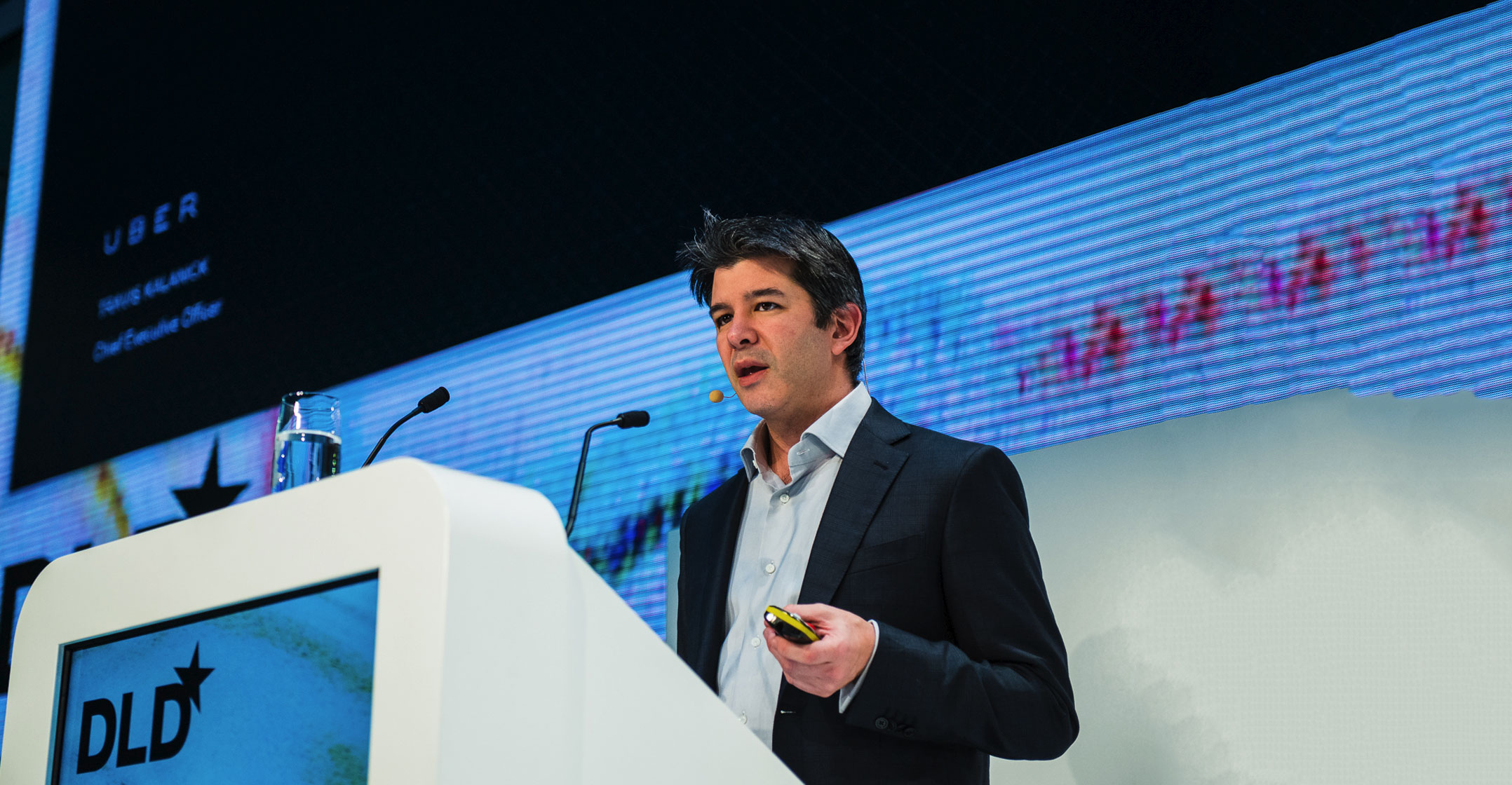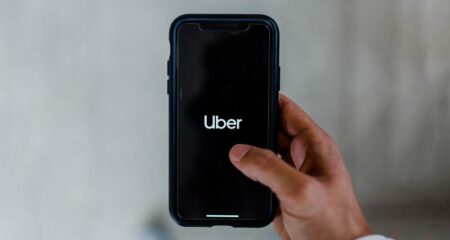
Uber Technologies will appoint Expedia’s Dara Khosrowshahi to run the global ride-hailing leviathan, two people familiar with the matter have said. He’ll succeed co-founder Travis Kalanick, who led the firm to US$20bn in annual bookings before scandals forced him out.
In hiring Expedia’s CEO, Uber will land a seasoned deal maker and an outspoken critic of US President Donald Trump, who’s accustomed to sparring with one of his new company’s biggest rivals, Alphabet. While a spokeswoman for Uber directors confirmed that they’ve chosen a CEO, she declined to name the person, saying the board would inform employees first. Expedia didn’t immediately respond to requests for comment.
Khosrowshahi will face a number of hurdles as Uber — which has raised more than $15bn from private investors — navigates its way toward a still-unscheduled initial public offering. The new top executive must grapple with the company’s persistent losses, a high-stakes trade secrets suit filed by Alphabet’s Waymo, a tarnished brand and low morale among Uber’s more than 15 000 global employees.
Uber’s board met over the weekend for a last round of interviews with candidates and to discuss options, said people familiar with the matter, who asked not to be identified because the deliberations were private. Hewlett-Packard Enterprise CEO Meg Whitman and General Electric chairman Jeffrey Immelt were under consideration for the job.
The board ultimately went with a dark horse. Khosrowshahi hadn’t been named publicly as a finalist during a CEO search that was plagued by leaks, boardroom infighting and a lawsuit involving two directors. He has accepted the position, people familiar with the discussions said.
Khosrowshahi, 48, is an Iranian-born American who graduated from Brown University with an engineering degree. He had a stint in investment banking at Allen & Co before joining with billionaire Barry Diller at IAC during the dot-com boom. Khosrowshahi led an acquisition binge in online travel, expanding IAC’s Expedia with takeovers of Orbitz and HomeAway.
Outspoken
He’s also one of the technology industry’s most outspoken CEOs in opposition to some of Trump’s policies. He railed against the immigration ban and mocked Trump on Twitter as repeatedly failing to “rise to the expectations of his office” after the president’s response to protests in Charlottesville, Virginia. Uber’s long year of controversies began in January when Kalanick tried to justify his position on a Trump business council before ultimately resigning that post after customers staged a boycott.
Khosrowshahi was effective at marrying disparate businesses across Expedia, many brought together through acquisitions, said Woody Marshall, an investor in the online travel industry who has known Khosrowshahi since they were kids. “He’s been able to leverage technology in a thoughtful way,” said Marshall, a general partner at venture capital firm TCV, which isn’t an Uber investor. “He’s the real deal. He’s not bigger than life in terms of his public appearance or public personality. He’s bigger than life in terms of culture and values.”

Under Kalanick, Uber grew into a massive global business. In the second quarter of 2017, the company lost $645m on almost $1.8bn in net revenue. During Kalanick’s nearly seven-year stint, the San Francisco-based start-up achieved a $69bn valuation, struck partnerships with major car manufacturers, took a sizable stake in its biggest global competitor and established itself as the premier ride-hailing business in most of the developed world. Kalanick earned a sort of legendary Silicon Valley status, elbowing into the ranks of founders like Elon Musk and Jeff Bezos.
However, Kalanick, 41, cultivated a brash reputation and played a central role in many of the company’s controversies. He was caught on tape arguing with an Uber driver over pay and was tied to the company’s mishandling of medical records for an Indian woman who had been raped by an Uber driver. Kalanick helped author the company’s cultural values, which consultants described as a way to justify bad behaviour in the office. He also drove the acquisition of the autonomous trucking start-up Otto for $680m in stock, which led to a the lawsuit from Alphabet.
Khosrowshahi has experience jousting with Alphabet’s Google. Expedia was among Google’s top search advertisers. But as Google began to promote more of its own travel services, Expedia was among the companies that formally opposed the search giant’s dominance in a European Union antitrust case. “We’re comfortably uncomfortable as it relates to Google,” Khosrowshahi told Bloomberg in July.
Uber’s search for a CEO started as a bid to find Kalanick “leadership help”, a process that began in March after Bloomberg published a video of Kalanick’s verbal altercation with a driver. It shifted focus to the top job after Kalanick’s resignation on 20 June. Uber’s other leadership needs include heads of finance and marketing, a general counsel and more independent board members, including a chairman. Uber is being led by a 14-person management committee alongside the eight-member board until the new CEO starts.
Other contenders
HPE’s Whitman gained support from some Uber board members for the CEO role after presenting her vision for the company on Saturday. She had previously denied that she would take the job. Whitman had been an informal adviser over the years to Kalanick and Ryan Graves, the company’s longest-running executive who’s set to depart next month but will remain on the board. Benchmark, Uber’s largest venture capital backer, was a fan of Whitman.
But Kalanick wanted someone willing to bring him back as a partner, something she was unlikely to do, people familiar with the matter said. Kalanick threw his weight behind GE’s Immelt, who was a serious contender but failed to win sufficient support from the board. He withdrew his name on Sunday morning in a Twitter post.
The CEO search had been further complicated by an ongoing legal fight between Kalanick and Benchmark. The VC firm accused the former CEO of fraud and asked a Delaware Chancery court to strip him of control over three board seats, effectively removing him from the board. The courtroom squabble is a sticking point in a potential investment from SoftBank Group, Didi Chuxing and others that would inject at least $1bn into Uber and allow a large contingent of shareholders to cash out.
In the end, the board voted unanimously for Khosrowshahi, a person familiar with the matter said. Investors seem to like him. Expedia’s stock is up 32% this year, built partly on enthusiasm for the company’s home-rental competitor to Airbnb. At Uber, Khosrowshahi will be tasked with instilling the same sort of confidence in shareholders and whipping the business into shape for an IPO. That will involve fixing a raft of issues that have been festering inside the company for years. — Reported by Eric Newcomer, with assistance from Gerrit De Vynck, Mark Bergen and Olivia Zaleski, (c) 2017 Bloomberg LP




